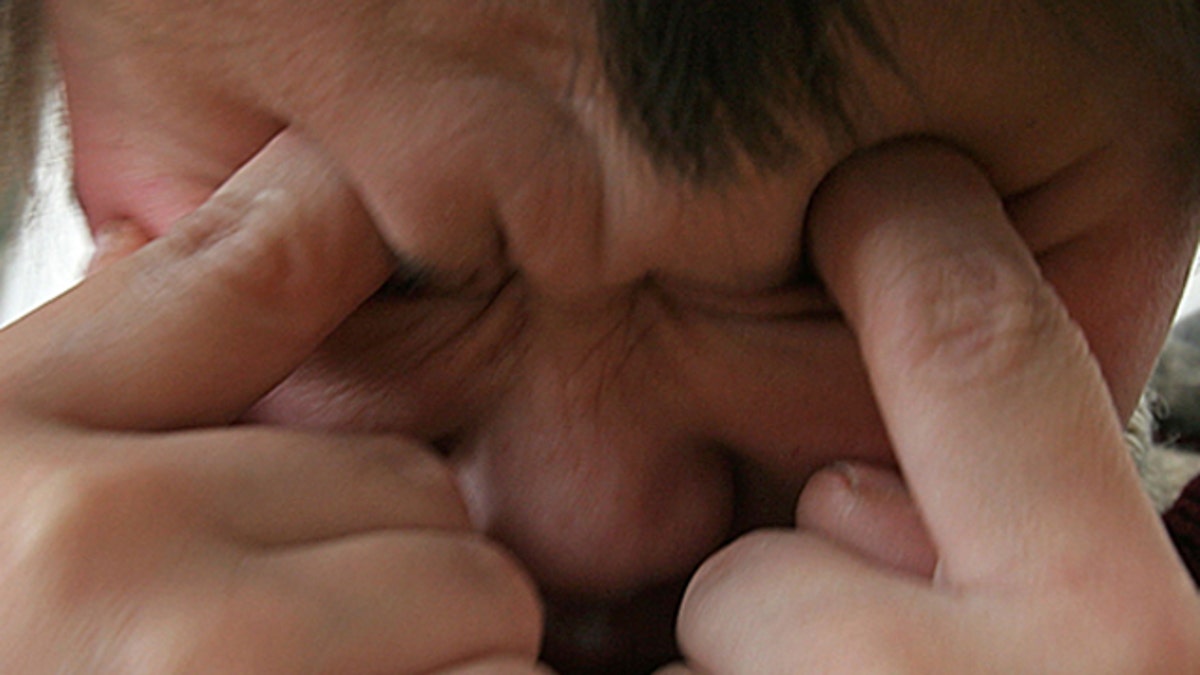
XINING, CHINA - DECEMBER 17: (CHINA OUT) A child suffering from infantile autism reacts during rest at the Xining Orphan and Disabled Children Welfare Center on December 17, 2005 in Xining of Qinghai Province, China. The Xining Orphan and Disabled Children Welfare Center, established in 1998, now houses about 85 orphans and disabled children. The center has developed into an integrative welfare institution providing fosterage, rehabilitation, medical treatment and education for orphans and disabled children. (Photo by China Photos/Getty Images) (2005 China Photos)
Researchers have for the first time identified two biologically different strains of autism in a breakthrough being compared with the discovery of different forms of cancer in the 1960s, The Australian reported Thursday.
The findings, to be announced at an international autism conference in Perth, Australia, Thursday, are seen as a key step towards understanding the causes of autism and developing effective treatments as well as a cure.
The findings bring hope that the communication, socialization and other difficulties that autistic children experience can be tackled more easily and earlier.
Researchers from the University of California Davis's MIND Institute in Sacramento began the Autism Phenome Project in 2006. They have been studying the brain growth, environmental exposure and genetic make-up of 350 children aged between two and 3.5 years, and have so far found two biologically distinct subtypes of autistic brain development.
One group of children -- all boys -- had enlarged brains and most had regressed into autism after 18 months of age; another group appeared to have immune systems that were not functioning properly.
Psychiatry professor David Amaral, who led the MIND Institute's longitudinal study, said the findings could lead to more individualized treatment. "The ultimate goal is when a child comes into the clinic, rather than saying you just have autism, to be able to say you have autism type A, or type B, or type C," Amaral said.
"And then based on that description, we would know whether there is a different treatment profile that we should recommend to the families.
"As an example, if a child has an immune form of autism, it may be that what we want to do is manipulate their immune system rather than trying something else that may be related to synaptic functions in the brain."
Families were currently presented with a vast array of treatments without necessarily knowing which worked, he said.
Amaral predicted there would be many more biological subtypes of autism identified just as there were many forms of cancer. "If we were trying to cure all cancer at the same time, it would be hopeless," he said. "Well, the same is true for autism. My guess is that there just isn't going to be a single diagnostic marker for autism -- there's going to be a whole panel."
For more news, check www.myfoxla.com
Follow us on twitter.com/foxnewslatino
Like us at facebook.com/foxnewslatino
